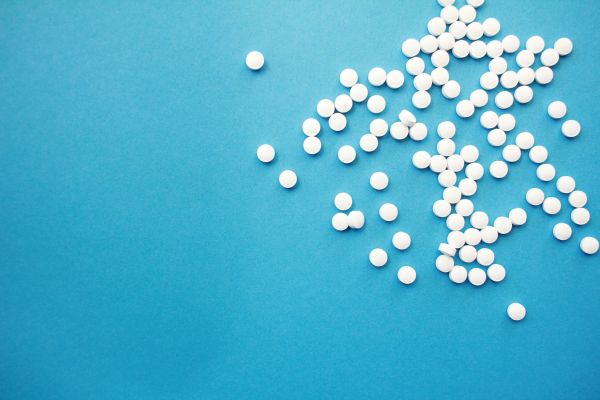Treatment of ADHD
Medication and behavioral treatments are both widely used to treat ADHD. While medication is often the first-line treatment, patients who receive behavioral treatments—typically therapy, parent training, or neurofeedback—often ultimately need less medication or are able to stop using it entirely. At the same time, several influential studies have concluded that the two treatment approaches may work best in tandem.
The best treatment plan for ADHD is unique to the individual, and typically includes a mix of medication, therapy, and/or lifestyle changes. Effective treatment should address both the underlying symptoms—like impulsivity or distractibility—as well as the resulting behavioral and social challenges (such as difficulties making friends, managing time, and poor self-esteem).
The most commonly used ADHD medications are stimulants such as Ritalin and Adderall. Non-stimulants like Strattera or certain classes of antidepressants can be used for those who don’t respond to stimulants or cannot tolerate them.
Whatever medication is used, it's important to receive the correct dosage, since ADHD medications, and stimulants in particular, can worsen other conditions that may co-occur with ADHD, including bipolar disorder, obsessive-compulsive disorder, and anxiety.
The main stimulant medications used to treat ADHD fall into two broad categories: methylphenidates and amphetamines.
Methylphenidate: Ritalin, Concerta, Daytrana, Focalin, Quillichew, Quillivant, Metadate
Amphetamine: Adderall, Dyanavel, Vyvanse, Dexedrine
Stimulant medications have been in use for decades, and though they may trigger side effects (such as headaches or irritability), most research has concluded that they are generally safe when taken appropriately. Children and adults with pre-existing heart conditions should work closely with their doctor, as stimulants can increase blood pressure or heart rate and may be dangerous for this group. Stimulants may also trigger tics, manic episodes, or, in rare cases, psychosis. In most cases, lowering the dose or changing medications should alleviate the issue.
The evidence is mixed. A longitudinal study published in 2017, for instance, found that extended use of stimulants to treat ADHD was associated with reduced height in adulthood. Other research, however—such as a longitudinal study from 2014—concluded that neither ADHD itself nor medication use was associated with suppressed growth. Parents should weigh the pros and cons of treatment and discuss the possibility of stunted growth with their doctor before starting a child on stimulants. They should also be aware that stimulant medications may significantly decrease appetite, which can affect growth; additional steps may be necessary in order to ensure that a child’s nutritional needs are being met.
Three non-stimulant medications—Strattera (atomoxetine), Intuniv (guanfacine), and Kapvay (clonidine)—are FDA-approved to treat ADHD. Wellbutrin (bupropion) and other antidepressants are often used off-label to treat ADHD.
It depends. Stimulants are typically the first-line treatment for ADHD, as they are generally safe and have a rapid onset, making it easier to determine efficacy. Non-stimulants are most often prescribed to those who can’t tolerate stimulants or who find stimulants ineffective. They have a more gradual onset and require several weeks of consistent dosing before progress can be accurately measured. While stimulants are more widely used, many with ADHD do find that non-stimulants work well for them. The only way to know if a medication will work for you (or not) is to try it; many with ADHD report trying multiple stimulants and/or non-stimulants before finding a medication that effectively manages their symptoms.
Behavioral therapy is thought to be the most effective non-medical approach for children with ADHD. It typically trains parents to respond consistently to their child’s negative behaviors and help them set and meet goals, while teaching the child coping techniques and social skills. A common refrain in the ADHD community, “pills don’t teach skills,” highlights the fact that while medication may control symptoms of hyperactivity or inattention, it cannot necessarily help a child learn how to behave appropriately or break negative habits. Behavior therapy aims to fill that gap.
For adults and older children with ADHD, cognitive behavioral therapy is most often used. CBT therapists can help adults develop stronger emotional regulation, overcome bad habits, and confront negative patterns of thinking and poor self-esteem that may be impeding their success.
Yes. For children, behavior therapy (typically with a parent-training element) has proven to be effective in many cases; for adults, CBT has been shown to help develop organizational skills and address maladaptive thought patterns. Other less structured forms of psychotherapy may also be useful for repairing damaged self-esteem and rebuilding relationships harmed by negative ADHD behaviors.
Yes. Although most head-to-head studies have concluded that medication is generally more effective than other standalone treatments, it can trigger unpleasant side effects and is not necessary to manage ADHD. A combination of therapy, exercise, meditation, and dietary changes have proven effective for many children and adults with ADHD. Emerging research also suggests that technological treatments—such as specialized video games, brain training programs, or neurofeedback—may improve ADHD symptoms; most experts, however, argue that more research is needed.














